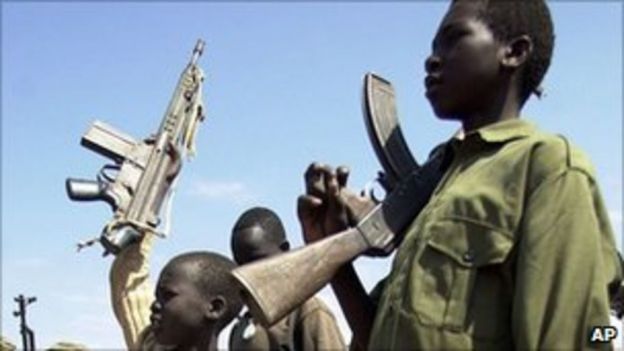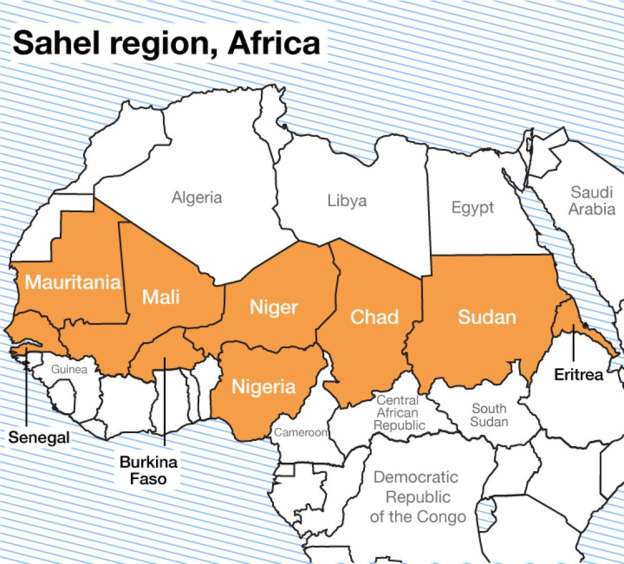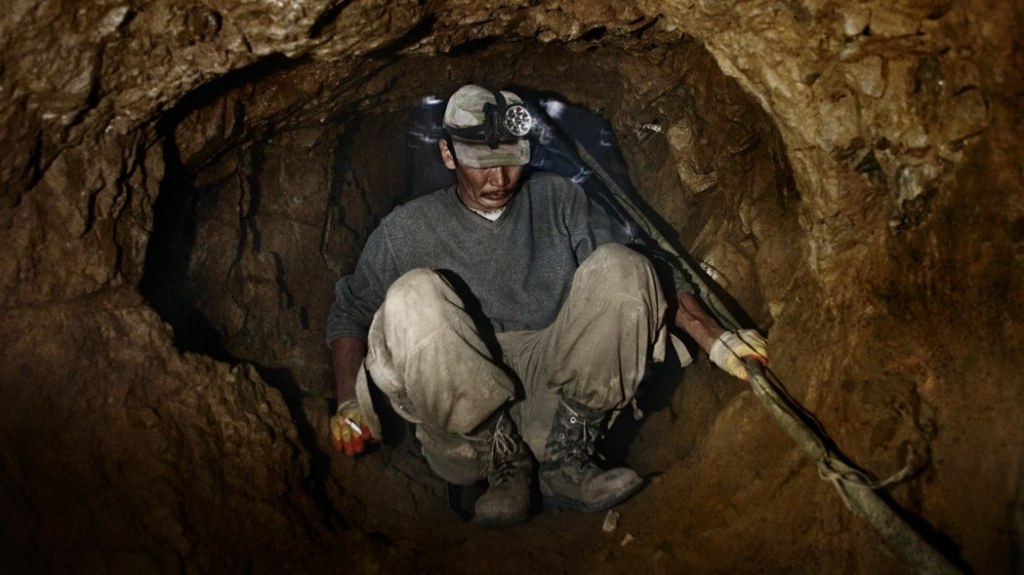Sahel: West Africa’s most populous countries, along the Atlantic coast, have become vulnerable to the predations of jihadists spilling out of failing states farther north in the Sahel on the borders of the Sahara desert. Jihadists seized control of chunks of Mali in 2012 and were stopped from overrunning Bamako, its capital, only after thousands of French troops were hurriedly flown in. The insurgents have since pushed across the border into Niger and Burkina Faso. In those three countries alone, 4,800 people lost their lives in the conflict last year. Fully 1.7m people have been forced to flee their homes. Now the war is beginning to jump borders again, putting at risk some of Africa’s fastest-growing economies, including Benin, Ghana and Ivory Coast.
This war in the Sahel has been growing rapidly. Ten times more people were killed last year than in 2014 (excluding deaths in north-eastern Nigeria, which faces its own jihadist insurgents). Two main jihadist groups are behind most of the fighting: the Islamic State in the Greater Sahara (ISGS) and Jama’at Nasr al-Islam wal Muslimin (JNIM), which is linked to al-Qaeda. These groups have extended their reach, even though thousands of international peacekeepers and local and Western soldiers have been deployed to stop them. France has sent some 5,100 troops to the Sahel, while the United States has provided another 1,200. In addition, the un has 15,000 blue helmets there, including about 350 Germans, plus 250 British soldiers who are soon to arrive. With American forces leaving Afghanistan, the Sahel will soon be the West’s biggest combat zone.
Worse, the jihadists are expanding in three directions at once. To the south they threaten Benin, Ghana, Ivory Coast and Togo. To the west there has been a spate of attacks in Mali close to its border with Senegal; and to the east with Nigeria’s insurgent groups. The jihadists already have a “de facto safe haven in northern Mali”, says General Dagvin Anderson, in charge of America’s commandos in Africa. He frets that as they expand they will have more scope to plan attacks on American soil.
The weakness of governments and the feebleness of their public services are helping the jihadists. In the neglected hinterlands of the Sahel the rebels offer themselves as an alternate state, serving up sharia and medical aid. Moreover, the jihadists have been adept at exploiting ethnic faultlines, for instance between largely Muslim and seminomadic Fulani herders and more settled farming communities, which have their own armed groups of traditional hunters known as Dozos. =
Trade and commerce also provide an incentive for the jihadists to expand their reach. The migration corridor between Burkina Faso and Ivory Coast is the busiest in Africa. Jihadists cash in by taxing traders and smuggling stolen livestock, drugs and guns. The gold mines in Burkina Faso have become a target. Much of the gold is smuggled out through Togo, which officially exported seven tonnes of the metal to the United Arab Emirates in 2018, despite mining very little itself. Gold is also pulling jihadists towards Senegal…
But in 2020, more civilians in the Sahel have been killed by government soldiers than by jihadists, says José Luengo-Cabrera of the International Crisis Group (icg), a Brussels-based ngo. “When soldiers kill the head of the family, they almost throw his sons and nephews into the arms of bearded men in shorts hiding in the bush,” one villager told Human Rights Watch, a global monitor. It says in the town of Djibo alone, in Burkina Faso, evidence suggests government forces have murdered 180 men—many of them were blindfolded and had their hands bound before they were shot. In Burkina Faso… citizens may feel safer living among terrorists than with their own country’s security forces.
Governments in the region and some Western forces have made matters worse by supporting militias. In 2018 the French army allied itself with Tuareg militias from Mali to fight against ISGS. They clobbered the jihadists but also killed scores of civilians, aggravating ethnic tensions and fuelling recruitment by the insurgents….Above all, governments need to regain legitimacy by providing services and holding themselves to account. “It is not possible to win the war if there is not trust from the population,” says Niagale Bagayoko of the African Security Sector Network…But good governance and decent services in the region are scarce. At a meeting of Sahelian leaders with Mr hard. In Burkina Faso alone, the jihadists have forced about 2,500 schools to close.
Excerpts from Jihad in the Sahel: Fighting a Spreading Insurgency, Economist, July 11, 2020


